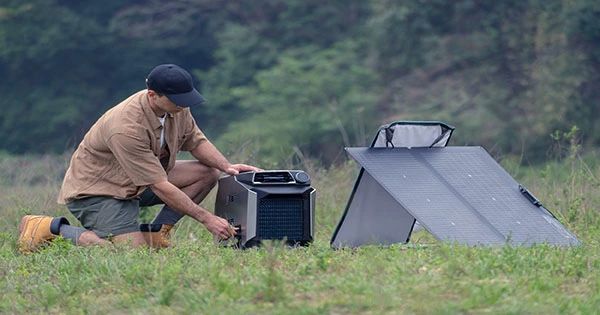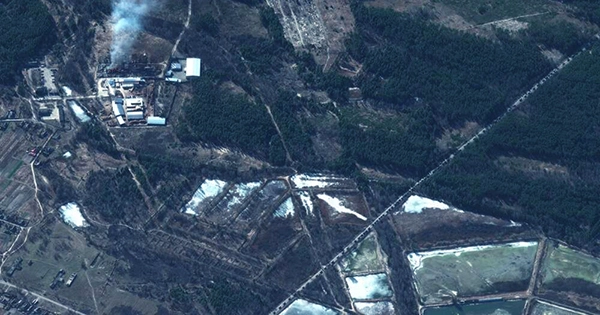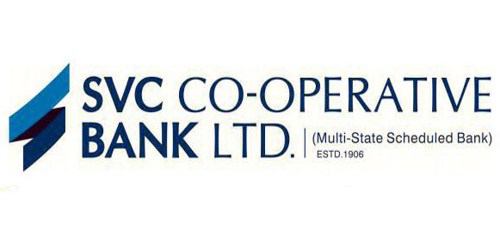Extreme climatic catastrophes and power outages have prompted doomsday planners to prepare for off-the-grid survival situations in recent years. EcoFlow, a Shenzhen-based power producing and storing unicorn, raked in $220 million in sales last year because to customer demand for its solar-powered portable power stations in the United States. The firm, which was created by a group of veterans from drone giant DJI in 2017, identified a new sector to crack: glamping, following a stunning development period in which sales increased 50x between 2019 and 2021.
In an interview with TechCrunch, Lei “Bruce” Wang, the company’s co-founder and CEO, saw a future where people might enjoy a refreshing breeze from EcoFlow’s outdoor air conditioner, which will be available in the United States in the coming months. Glampers can already plug in a variety of appliances, such as electric ovens and stoves, to portable battery stations, but air conditioners are more difficult to charge because they use alternating current, which is incompatible with battery charging and has lower efficiency, according to the founder. EcoFlow’s outdoor air conditioning device, on the other hand, runs on direct current and may thus be powered by batteries.
The concept of outdoor air conditioning may irritate nature-loving campers. I was perplexed by the notion as well, but Wang correctly pointed out that even if burnout city dwellers made the effort to drive out into nature, many would choose to do it in a pleasant and luxurious manner. “Everywhere people go, whether at home or away from home, they can do a lot more with power,” Wang said, explaining why the company decided to go out beyond batteries and into electrical equipment. “We now cover the complete loop [of use cases], from generation to storage to consumption,” says the company.
Wang grew up in the Mu Us Desert in northern China, where he witnessed how the government’s ecological restoration program aided in the area’s fight against severe desertification. He was inspired to pursue a career in renewable energy as a result of his childhood experience, which prompted him to obtain a PhD in energy storage technologies at the University of Hong Kong and subsequently assist develop DJI’s battery R&D department. Wang chose to create his own firm in 2017 after seeing the tide in the energy market flip. “The essential method to raise energy consumption per capital while still achieving sustainable growth is to replace fossil fuel with renewable energy,” the creator emphasized.
At the same time, lower raw material costs made it easier to launch a battery company. “The cost of lithium batteries and solar panels has dropped tenfold between 2010 and 2020.” “Under such circumstances, everyone pursuing technological development would be compelled to become a tide player, to take a gamble,” Wang remembered. Wang is unconcerned about recent lithium price hikes and supply chain problems. According to the creator, EcoFlow works with important partners to assure a consistent flow of supplies, and he expects lithium prices will eventually fall.
Since its inception as a Kickstarter project, the company has gone a long way. Sequoia Capital China and GL Ventures, the early-stage subsidiary of private equity firm Hillhouse Capital, have contributed over $100 million to the company. EcoFlow aims to produce $630 million in sales this year as a result of the category expansion and wants to expand into other countries such as China, which would represent a nearly 150x increase in revenue between 2019 and 2022. EcoFlow’s road to an initial public offering is being accelerated by this expansion. EcoFlow was valued at $1 billion last year and announced ambitions to go public on the Shenzhen Stock Exchange.
The firm has begun a preliminary “tutoring” stage with the city’s exchange officials, with the goal of floating its stock in the following two to three years. Wang believes that the Shenzhen-based exchange, which was created to foster technical innovation, will attract investors who “understand the new energy business,” though he does not rule out the prospect of an international listing in the future. EcoFlow, which is profitable, has declined to say if it plans to raise further funds before its IPO.
















